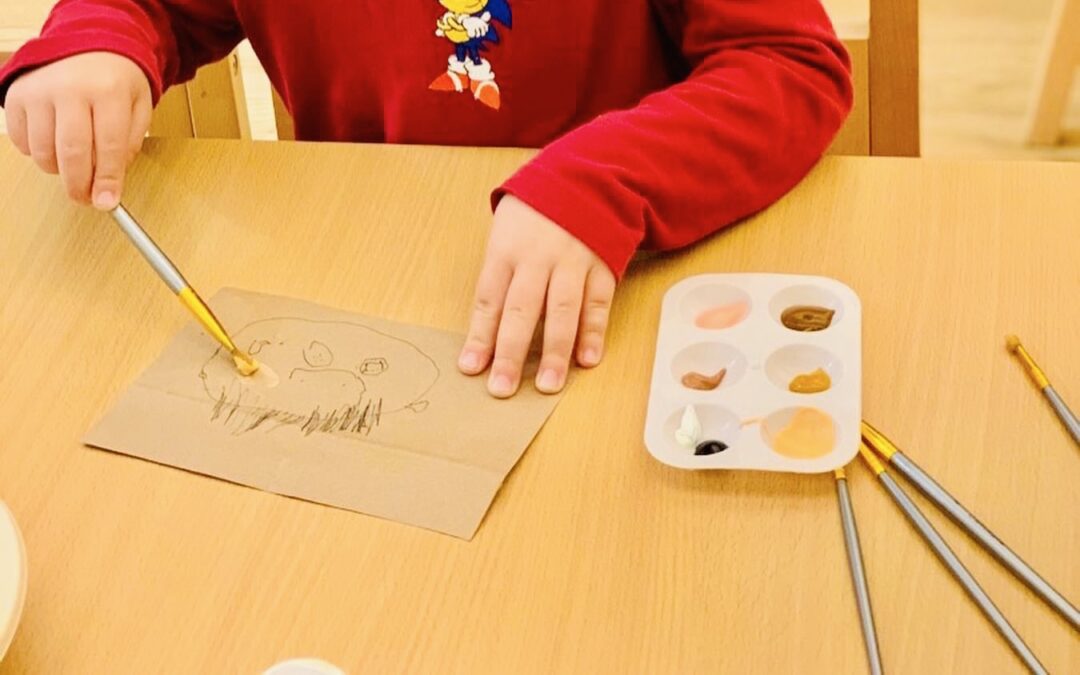Please find below our bi-weekly at-home enrichment experience! Subscribe to the SolBe blog via the form below for more experiences to try at home and for additional empowering content for parents and caregivers.
February is Black History Month—a time to honor and celebrate all the achievements and contributions of Black people from all periods of U.S. history. Did you know that children are never too young to learn about empathy and how to notice and celebrate differences? Several studies suggest that children as young as six months begin to notice physical differences like skin color. You can support this learning by:
- Offering books that center on diverse characters
- Representing diversity through the toys and materials you provide
- Inviting your child to talk about differences
Below, you will find our collection of book suggestions and learning experiences to help you celebrate Black history with your child this February and all year!
Learning Experiences
1. Listen to and discover music from different Black cultures. Follow this link to explore a list of BIPOC-representing musicians for children. #ConcertsForKids by the Soul Science Lab is another great resource designed to empower children to celebrate diversity.
2. Paint and explore self-portraits. Invite your child to use art materials to create a self-portrait or a portrait of a significant figure in Black history. Ask your child what they notice about their portraits. You might also consider sharing portraits done by black artists, including Kehinde Wiley and Amy Sherald’s portraits of President Barack Obama and former First Lady Michelle Obama.
3. Cook a traditional African American recipe. Choose a recipe that is suitable to make with your child and talk about how African American food has influenced the food we eat and our culture. Here is a list of 38 recipes to choose from!
4. Read books that include diverse representation and/or celebrate Black historical figures. You can also read books with your child that address matters of race(ism) and our own biases.
- M is for Melanin: A Celebration of the Black Child by Tiffany Rose
- BLACK is a Rainbow Color by Angela Joy
- Dream Big, Little One by Vashti Harrison
- Mae Among the Stars by Roda Ahmed
- Lola Reads to Leo by Anna McQuinn
- Parker Looks Up: An Extraordinary Moment by Parker Curry and Jessica Curry
- You Matter by Christian Robinson
- Follow Your Dreams, Little One by Vashti Harrison
- The ABCs of Black History by Rio Cortez
- Joy by Joyce Carol Thomas
- Brave Ballerina by Michelle Meadows
- Something Happened in Our Town: A Child’s Story About Racial Injustice by Marianne Celano, Marietta Collins, and Ann Hazzard
- I Can Do It Too by Karen Baicker
- Antiracist Baby by Ibram X. Kendi
- My People by Langston Hughes
If you try this at home, let us know on Instagram @solbelearning. Be vibrant and keep thriving!
Be vibrant and keep thriving!
This article was last reviewed or updated on February 25, 2024.
References
Wright, B. L.. (2020). Now read this! Books that promote race, identity, agency, and voice. Teaching Young Children, 14(1). https://www.naeyc.org/resources/pubs/tyc/oct2020/now-read-this



